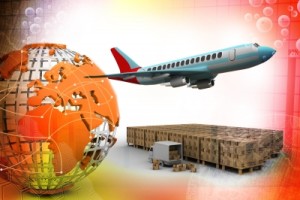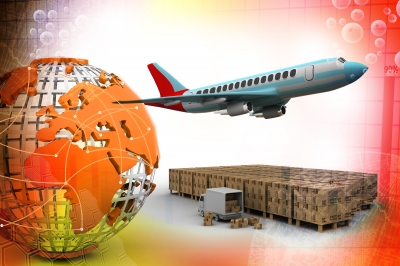 The Philippine electronics industry has identified four trade facilitation policy reforms that it wishes the government to prioritize, saying these will help the industry keep its title as the country’s biggest merchandise exports contributor.
The Philippine electronics industry has identified four trade facilitation policy reforms that it wishes the government to prioritize, saying these will help the industry keep its title as the country’s biggest merchandise exports contributor.
These reforms are the passage of the Customs Modernization and Tariff Act (CMTA), signing of the ATA Carnet, implementation of Phase 2 of the Philippine National Single Window (PNSW), and approval of the Strategic Trade Management Act (STMA).
Dr. Danilo Lachica, Semiconductor and Electronics Industry in the Philippines (SEIPI) president, in a presentation during the National Export Congress on December 3, said signing of the CMTA will make the Philippines compliant with the Revised Kyoto Convention (RKC) and other international agreements, as well as align it with the trend to harmonize, modernize, and simplify customs procedures.
READ: BOC overhaul lies with customs modernization act passage – DOF
The measure, he added, will also use information and communications technology to institutionalize electronic systems that will help enhance customs operations and enforcement and eliminate face-to-face transactions leading to the eradication of corruption.
The bill, tagged as a priority by the 16th Congress, has been approved on third reading at the Lower House but is awaiting final approval from the Senate.
ATA Carnet
Another measure being pushed is for the Philippines to sign the ATA Carnet, an international customs and temporary export-import document that is used to clear customs in countries without having to pay duties and import taxes on merchandise that will be re-exported within 12 months, and to facilitate temporary imports into foreign countries and re-importation into the U.S.
Lachica noted that if the Philippines signs ATA Carnet, which already counts 85 countries as participants, commercial samples and professional equipment and goods for exhibitions can easily be transported.
Another project SEIPI is rooting for is completion of the PNSW Phase 2. The PNSW, a project that involves the Bureau of Customs (BOC), is an Internet-based system that allows parties involved in trade to lodge information and documents through a single entry point in fulfilling all their import, export, and transit-related regulatory requirements.
The PNSW’s first phase was started in October 2009 and completed in October 2010. It included installing and configuring the TRIPS™ Single Window, as well as providing linkages among 40 agencies that issue permits, licenses, and clearances for imports and exports.
However, PNSW Phase 2, which involves government-wide rationalization, standardization, and harmonization of all trade data and enhancement of trade portals in preparation for the ASEAN Single Window, has yet to be implemented.
According to Lachica, BOC aims to finish the NSW Phase 2 by year-end.
The NSW Phase 2 is, however, under a legal cloud with Customs commissioner Alberto Lina having cancelled the bidding for the BOC’s P650-million computerization project, which included the NSW Phase 2. A Manila regional trial court in August has stopped Lina from cancelling the project. The case is on appeal by the BOC.
READ: Court halts cancellation of P650M BOC computerization project
Meanwhile, the STMA, an act preventing the proliferation of weapons of mass destruction by managing trade in strategic goods, has already been signed and approved by President Benigno Aquino III on November 13.
Four industry bottlenecks
Aside from these reform policies, Lachica identified four major bottlenecks in the industry: the Philippine National Police’s (PNP) system of permit and licensing approval for regulated chemicals, duplication of permits, 100% MSDS (material safety data sheet) declaration, and the Immigration green lane for foreign C-level executives who visit the country.
Lachica said it takes more than 24 days for permits to be approved by the PNP, and the industry had already paid P10 billion in 2015 just for escort fees in transporting regulated chemical products.
Department of Interior and Local Government undersecretary Edwin Enrile, during the same event, said the PNP has an ongoing review and consultation with stakeholders to try and reduce the number of regulated chemicals and streamline issuance of permits.
Enrile said seven chemicals will be excluded from the PNP list of controlled chemicals and more may follow in order to facilitate the import of chemicals commonly used in manufacturing.
READ: PNP eases rules on regulated substances, cuts 7 chemicals from list of controlled substances
Another industry bottleneck is the duplication by agencies of required permits, according to Lachica. For example, the Department of Labor and Employment and Philippine Economic Zone Authority both require establishments under their jurisdictions to secure Technical Safety Permits, particularly the Permit to Operate/Fabricate and Certificate of Electrical Inspection.
Furthermore, Lachica said the industry finds it a challenge to import chemicals because some suppliers are not willing to share chemicals’ complete formulations, this being a trade secret.
He noted that suppliers are declaring that these trade secret ingredients are intellectual property, and that they have the prerogative to invoke their right to safeguard their technology.
Meanwhile, Lachica said some prospective investors and C-level executives who frequently visit the country do not have a special lane in airports so they could avoid cumbersome lines in immigration, processing of visas, and the like.
The SEIPI president said the electronics industry continues to account for the largest share of the country’s exports, contributing US$26 billion in 2014. He cited an independent study by the University of the Asia and the Pacific which showed that if the electronics industry in the country were to disappear, this would lead to a 28% contraction in the country’s gross domestic product. – Roumina Pablo





